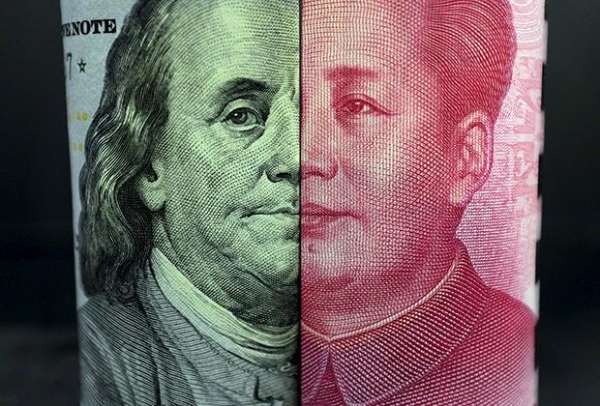
The book William easterly, “the Tyranny of experts”
Experts often extol the authoritarian leaders for their contributions to the rise of national economy. According to many economists, it’s timely tough decisions taken by the “benevolent dictator”, accelerate the development of a particular country. But economist William easterly believes that this opinion is harmful and wrong, because the justification of the actions of an authoritarian ruler gives him even more power to violate the rights of the poor.
With the permission of the publishing house of the Gaidar Institute.<url>” published an excerpt from the book William easterly, “the Tyranny of experts. Economists, dictators and the forgotten rights of the poor”.

Sam and Joe — two of the hero of one of the parables
I’ll tell you a story about Sam and Joe. The original choice of life did Sam five times richer than Joe. Most of his life, Joe remained poor, while the income of Sam continued to grow steadily. Reaching middle age, Sam was twenty times richer than Joe. Finally, in this lowest point goes right to Joe’s face and he began to catch up with Sam. In the last four years, the Sam income stagnated, and the income Joe grew up. Nevertheless, today, the same as in the beginning, Sam is still five times richer than Joe.
Who would you rather be Sam or Joe? If Sam was following one career scenario, and Joe another, who would imitate you — Sam or Joe? I think most would prefer the path of Sam.
Remember this parable, let’s get back to development. If over the last three decades the growth rate of China’s economy have been remarkable, the US growth was mediocre. The financial crisis of 2008, severely disrupting the United States, practically has not affected the national economy of China.
In 2011, the recognized experts in the development economists Nancy Birdsall and Francis Fukuyama, noted the impact of the 2008 crisis to the ideology of “benevolent autocracy” (emphasizing that generalize other people’s opinions, not your own). They note: “the Leaders of both developing and developed countries admire the remarkable ability of China to recover from the crisis. This is the result of the actions of the authoritarian machine of political decision-making, avoiding delays associated with cumbersome democratic process. After that, political leaders of developing countries associate economic efficiency with an authoritarian political system”.
With similar enthusiasm expressed by New York Times columnist Thomas Friedman: “Certainly, one-party autocracy has its flaws, but when it is led by a group of enlightened leaders, as in China today, it can have great benefits. Such one-party system the country is able to impose politically difficult but important decisions necessary for entering society in the XXI century”.
I hope you guessed that in the parable, involving a long history of mankind, Sam personifies the United States, and Joe symbolizes China. Why the parable puts us in favor of uncle Sam, and the prospect of life seduces uncle Joe (he — Zhao)? This example contains two of the most common errors that occur when processing the data. First, we use too little data. Secondly, based on these data, we make erroneous conclusions about the future.
As for the data, when comparing China and the U.S. we ignore the long historical experience and take into account only the events of the recent past: the growth rate of the economy over the past three decades (or even over the past four years). We ignore the long tradition of economic superiority of America over China. This, again, shows our tendency every time to start the story as if “from scratch”.

Photo: Kevin Frayer / Getty Images
However, it’s surprising how often the discussion on development are based on a narrow evidence base (to which the author has lamented, speaking about the attitude of bill gates to the facts of child mortality in Ethiopia). Here Ethiopia appears again as a fresh example of the economic miracle, supposedly created an authoritarian regime (as aid agencies announced only after seven years of high growth).
With praise about this country, said British Aid: “In recent years, Ethiopia has shown impressive growth and development.” Made this country “great leap” was confirmed by the United States Agency for international development (USAID). However, from the materials of USAID, it becomes clear that economic growth in Ethiopia partly due to improved weather conditions after the severe drought that took place seven years ago.
Nevertheless, the United States convinced that “Ethiopia” (read: its authoritarian government) develops the economy and society in the direction, promising her the status of a country with a medium level of abundance”. To chorus singing of “transformational progress” of Ethiopia, was joined by world Bank President Jim Yong Kim, attributing them to the efforts of “stable” government that pursues “prudent economic policies” calculated “long-term”.
The myth of “the streak”
The second psychological mistake (after the recognition on the basis of insufficient data or that of the autocrat of the Creator of the next “economic miracle”) is that temporary success is taken for long-term trend. We expect that the current (temporary) growth rate of the economy will be as wonderful forever. Thus in the merit of the autocrat is a success that hasn’t even happened and most likely will not happen.
The relative clarity of this issue made the publication about basketball. One of its authors was a psychologist Amos Tversky, who passed away in 1996. The basketball player caught the ball in the basket many times in a row, saying that he “began the streak” (“he has a hot hand”). Another time the coach is likely to advise the members of the team to pass the ball to this player. However, after analyzing the data about the throws, hits and misses, Tversky found that this advice is wrong. The next time you throw a “lucky” player will have more chances to throw the ball in the basket than any of his teammate. How is that possible?
Your article Tversky provided the subtitle: “About the wrong perception of random sequences”. Getting into the basket is a combination of skill and luck. Even the best players, it manages only about half of the cases. So throw the ball in the basket is similar to tossing a coin, where even a skilled player has the same chance to get “heads” and “tails”. If you throw the ball long enough, then — as in the example with the coin — it may be a few hits in a row. However, the likelihood that next time you will get heads, remains the same: “fifty-fifty”.
So, this is skillful, “lucky” player promahivayas in half of the cases. He occasionally manages to make a series of hits, but the probability of the next successful series remains at 50 percent. Therefore, although sometimes (when he’s lucky) the performance of throws to reach 100 percent, it is expected that she eventually will be reduced to the average level of 50 percent. This is called “regression to the mean”.
In addition, the fast growth of the economy requires that many business entities accordingly. Let’s call them “good fundamentals”. However, to achieve high growth rates and may require a certain amount of luck (for example, higher prices for your exports and/or falling prices for imported materials for your production, not to mention long periods of favourable weather conditions).
Further, talking about the growth of national economies, we have noted that in explaining the volatility of these indicators you need to consider even the errors in the measurements. In some cases, because of these errors “benevolent autocrats” show more successful results than achieved in reality. In the future, if the national economy and will retain the same characteristics, then good luck (or measurement error) will not last forever. The high growth rate of the economy will fall — in line with the fundamental indicators — to the level of its average effectiveness.
In relation to economic growth, the presence of regression to the mean is evident by many economists. This fact is discussed in the eighth Chapter, explaining why national differences in economic growth rates tend to be temporary.

Photo: Jason Lee / Reuters
The same is true for the difference between the rate of economic growth due to the policies of state leaders. Strip rapid economic growth makes us believe in the ability of a leader to “get lucky”, but this “streak” as a rule, is temporary. However, after meeting with the regression to the mean, we seem to be in the psychological blinders. We tend to ignore this phenomenon and expect that the high efficiency band will last forever. Our belief in “streak of luck” — whether in sports or in the economy — never dies.
Practically, this means that we mistakenly expect the authoritarian leader continue high rates of economic growth. And high growth rates we ascribe to the merits of the “benevolent autocrat”. Thus, the credit in his account we record twice — now and in the foreseeable future is incorrect. The conclusion is clear: having considered a number of examples of rapid economic growth in some autocracies, we find that the argument in favor of “benevolent autocrats” is not proven.








